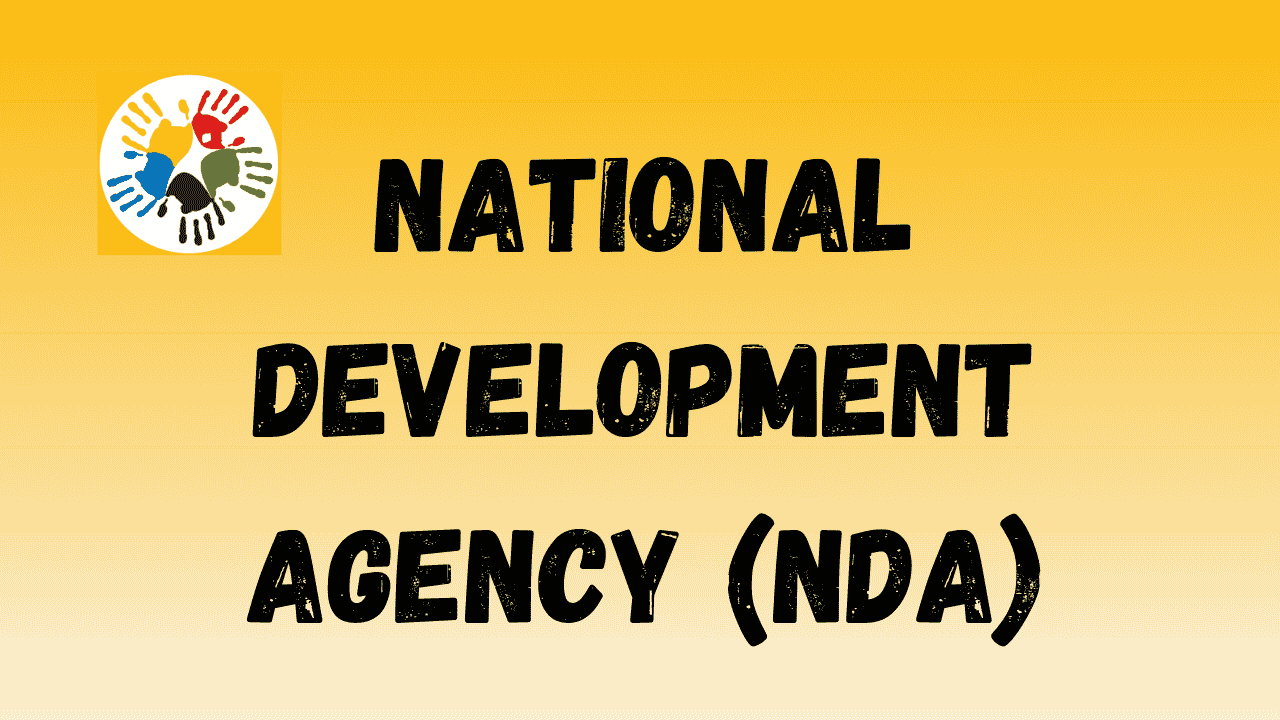The National Development Agency is a public entity established in 1999 under the National Development Agency Act (Act No. 108 of 1998). The agency’s primary purpose is to contribute to the eradication of poverty and its causes by funding civil society organizations (CSOs) that implement development projects and programs.
Vision and Mission
- Vision: A society free from poverty and inequality.
- Mission: To contribute to poverty eradication by supporting CSOs and facilitating sustainable development.
Key Objectives of the NDA
The NDA operates with specific objectives designed to address socio-economic challenges:
- Resource Mobilization: Channeling funds to CSOs engaged in poverty eradication.
- Capacity Building: Enhancing the organizational capacity of CSOs.
- Research and Development: Conducting studies to inform poverty alleviation strategies.
- Advocacy: Promoting partnerships and influencing policies to support development.
Governance and Organizational Structure
The NDA operates under the guidance of the Department of Social Development (DSD) and is overseen by a Board of Directors. The organizational structure ensures effective implementation of its mandate.
Governance Structure
| Governance Level | Key Responsibilities |
|---|---|
| Board of Directors | Strategic oversight, policy formulation |
| Executive Management | Operational leadership and decision-making |
| Regional Offices | Localized implementation and support for CSOs |
Programs and Initiatives
The NDA’s programs are focused on empowering communities and addressing poverty. These programs include funding, capacity building, and strategic partnerships.
1. Funding Initiatives
The NDA provides financial grants to CSOs for:
- Community development projects
- Skills development and training
- Income-generation initiatives
Funding Allocation Table (2023)
| Program Type | Percentage of Total Budget |
| Community Development | 40% |
| Skills Development | 35% |
| Income Generation Projects | 25% |
2. Capacity Building
Capacity-building programs focus on enhancing the operational efficiency of CSOs. Key components include:
- Governance training
- Financial management
- Project planning and implementation
3. Research and Advocacy
The NDA conducts research to:
- Identify poverty trends and root causes
- Develop evidence-based policies
- Influence national and local development agendas
Impact of the NDA
The NDA has played a significant role in alleviating poverty and promoting sustainable development. Below are some measurable impacts:
Socio-Economic Impact
- Job Creation: Through funded projects, the NDA has contributed to employment opportunities in local communities.
- Education: Facilitated skills development programs, enabling individuals to access better opportunities.
- Improved Livelihoods: Supported income-generating activities for vulnerable households.
Statistical Overview (2022)
| Impact Area | Achievements |
| Jobs Created | 15,000 |
| CSOs Supported | 1,200 |
| Households Benefited | 250,000 |
Challenges and Criticisms
Despite its successes, the NDA faces challenges that hinder its full potential:
1. Limited Funding
- Insufficient resources to meet the growing demand for poverty alleviation programs.
2. Bureaucratic Inefficiencies
- Delays in the disbursement of funds.
- Complex application processes for CSOs.
3. Monitoring and Evaluation
- Limited capacity to monitor and evaluate the impact of funded projects.
Strategic Goals for the Future
To address its challenges and amplify its impact, the NDA has set strategic goals:
- Increased Funding: Explore partnerships with international donors and private sector entities.
- Enhanced Monitoring: Implement robust monitoring systems to track project outcomes.
- Technology Integration: Utilize digital tools for efficient grant management and communication.
Contact Details
- Postal Address: PO Box 31959, Braamfontein, 2017
- Physical Address: 26 Wellington Road, Parktown, Johannesburg, 2193
- Phone: 011 018 5500
- Website: www.nda.org.za
Conclusion
The National Development Agency is a cornerstone in South Africa’s fight against poverty and inequality. By supporting CSOs, conducting research, and advocating for policy changes, the NDA significantly contributes to sustainable socio-economic development. However, addressing its challenges and expanding its reach is critical for maximizing its impact.
Through strategic partnerships and continuous improvement, the NDA has the potential to transform lives and communities, paving the way for a prosperous and equitable South Africa.
